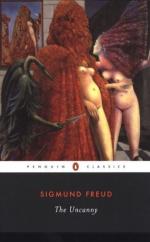
|
| Name: _________________________ | Period: ___________________ |
This quiz consists of 5 multiple choice and 5 short answer questions through Creative Writing and Daydreaming.
Multiple Choice Questions
1. What does the bread in Henri's childhood memory represent?
(a) That he needs nourishment.
(b) Nothing.
(c) The daily living.
(d) The daily routine.
2. What does the subconscious desire allow to manifest in the conscious mind of a dreamer, according to Freud?
(a) A driving desire.
(b) A repressed desire.
(c) A hidden desire.
(d) A suppressed desire.
3. What is the suppression in a dreamer usually a result of, according to Freud?
(a) The conflict between the desire and the reality.
(b) The conflict between reality and fantasy.
(c) The conflict between the ego and the conscious.
(d) A conflict between the unconscious and conscious.
4. What is the basis of Freud's essay, "Creative Writing and Daydreaming"?
(a) To better understand the genesis of the creative process.
(b) To understand how writing and dreaming manifested.
(c) To have the opportunity to write creatively.
(d) To daydream.
5. How does Freud end "Creative Writing and Daydreaming"?
(a) Honestly.
(b) Angrily.
(c) Emphatically.
(d) Abruptly.
Short Answer Questions
1. What is the person wearing in Henri's early childhood memory?
2. What are Henri and the person in his dream given?
3. What happens when the forces coexist in the case of a childhood memory?
4. What can fantasies do to the unhealthy dreamer?
5. What age does the creative process especially begin to unfold in a person, according to Freud?
|
This section contains 254 words (approx. 1 page at 300 words per page) |

|




